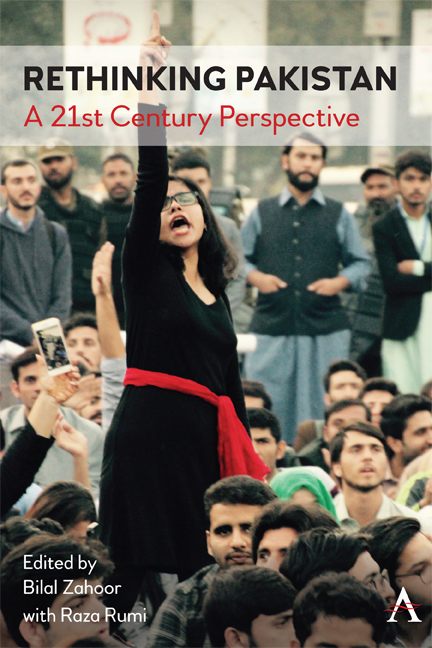Book contents
- Frontmatter
- Dedicated
- Contents
- Acknowledgements
- Introduction
- Part I Identity, Religion and Radicalisation
- Part II Development, Reform and Governance
- Part III Rights, Repression and Resistance
- Part IV Sex, Gender and Emancipation
- Part V Conflict, Diplomacy and Foreign Policy
- Contributors
- Bibliography
- Index
Chapter 21 - Peace Must Win
Published online by Cambridge University Press: 20 January 2022
- Frontmatter
- Dedicated
- Contents
- Acknowledgements
- Introduction
- Part I Identity, Religion and Radicalisation
- Part II Development, Reform and Governance
- Part III Rights, Repression and Resistance
- Part IV Sex, Gender and Emancipation
- Part V Conflict, Diplomacy and Foreign Policy
- Contributors
- Bibliography
- Index
Summary
Ever since the Partition of 1947 and the creation of two nation states, a perennial theme has defined the postcolonial trajectories of India and Pakistan: the construction of nationalism. The newly created states lacked a coherent self-definition when the British left India in a shameful hurry, after lording over a holocaust and, perhaps, the greatest migration of the twentieth century. The Indian National Congress (INC) had a fairly well-worded mythology about India's past and its role in the future. But, as recent events have shown, the very idea of India is under intense scrutiny by the right wing, which insists that the imagination of the Indian nation ought to be revisited.
Reimagining the national identity in a communal outlook leads to categorisation of identities which articulates identity in defined limits by adhering to the norms and conducts of a specific community. The pattern of identity in a community is developed in opposition to the defined other which is its antagonist. These two forces appeal to the rituals, symbols and religion to reassert identity in the face of uncertainty and sense of passivity. It brings into memory the nostalgic past and myths as the moving force of history to form new identities. The reassertion of community operates in contradiction to the rational principles of modernity. It is transformed into a political movement in a different dimension under the impact of modernity. The politicised assertion of community in the face of changing social, economic and political relations acquires religious overtones.
While the founding fathers of India strived to make sense of the postcolonial Bharat, their erstwhile compatriots in Pakistan had a more onerous task at hand: that of creating a nation comprising the ardent Pakistan believers, the reluctant communities and the outright naysayers. This was made worse by the fact that the new state immediately found itself petitioning for its legitimate assets from the British India and constructing the entire state machinery from scratch as only patches of it existed on the ground. The early demise of Pakistan's founder Muhammad Ali Jinnah, 13 months after the creation of the “nation”, made the entire exercise intractable and state-building has been a continuous, lapsed project to date.
- Type
- Chapter
- Information
- Rethinking PakistanA 21st Century Perspective, pp. 219 - 226Publisher: Anthem PressPrint publication year: 2020



